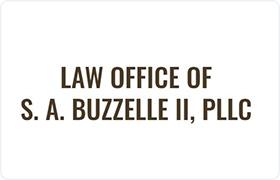Phoenix Bankruptcy Lawyer, Arizona
Sponsored Law Firm
-
 x
x

Click For More Info:
-
Law Office of S.A. Buzzelle II, PLLC
14050 N 83rd Avenue Suite 290 Peoria, AZ 85381» view mapBankruptcy & Debt Law Your Trusted Bankruptcy Attorney
If you are in need of legal services for matters relating to bankruptcy and divorce, rely on Law Office of S. A. Buzzelle II, PLLC in Peoria, AZ.
800-873-4991
Includes: Bankruptcy Litigation, Commercial Bankruptcy, Consumer Bankruptcy, Dissolution
Sean Robert Forrester
✓ VERIFIEDCriminal, DUI-DWI, Bankruptcy
Sean Forrester, managing attorney at Lerner and Rowe Law Group, has made a career advocating for the rights of the citizen accused. Mr. Forrester has ... (more)
FREE CONSULTATION
CONTACTChris J. Dutkiewicz
Bankruptcy, Corporate, Estate Administration, Estate Planning
Status: In Good Standing
FREE CONSULTATION
CONTACTFREE CONSULTATION
CONTACTKyle A. Israel
Estate Planning, Bankruptcy, Personal Injury, Intellectual Property, Business
Status: In Good Standing
 Stanley A. Buzzelle II Peoria, AZ
Stanley A. Buzzelle II Peoria, AZ Practice AreasExpertise
Practice AreasExpertise

